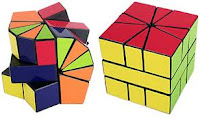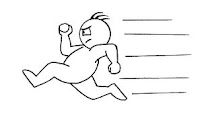In case you were wondering whether to practice today or not, please read on:
 A new study found that musicians might have brains that function better than their peers well into old age.
A new study found that musicians might have brains that function better than their peers well into old age.Courtesy of the Huffington Post - full article here
Researchers tested the mental abilities of senior citizens and discovered that musicians performed better at a number of tests. In particular, musicians excelled at visual memory tasks. While musicians had similar verbal capabilities to non-musicians, the musicians' ability to memorize new words was markedly better, too. Perhaps most importantly, the musicians' IQ scores were higher overall than those who spent their lives listening to music rather than performing it.

The experience of musicians also played a role in how sharp their minds were. The younger the musicians began to play their instruments, the better their minds performed at the mental tasks. Additionally, the total number of years musicians played instruments throughout their life corresponded with how strong their brains remained years later.
The study also found that musicians who took the time to exercise between symphonies had even higher-functioning brain capabilities. This finding supports another recent study that reported people who walk regularly maintain healthier brains. With that in mind, perhaps joining a marching band now will make you the smartest person at the retirement home in the future.
ORIGINAL RESEARCH:
Summary:
While it is known that practicing music repeatedly changes the organization of the brain, it is not clear if these changes can correlate musical abilities with non-musical abilities. The study of 70 older participants, with different musical experience over their lifetimes, provides a connection between musical activity and mental balance in old age. "The results of this preliminary study revealed that participants with at least 10 years of musical experience (high activity musicians) had better performance in nonverbal memory, naming, and executive processes in advanced age relative to non-musicians."











